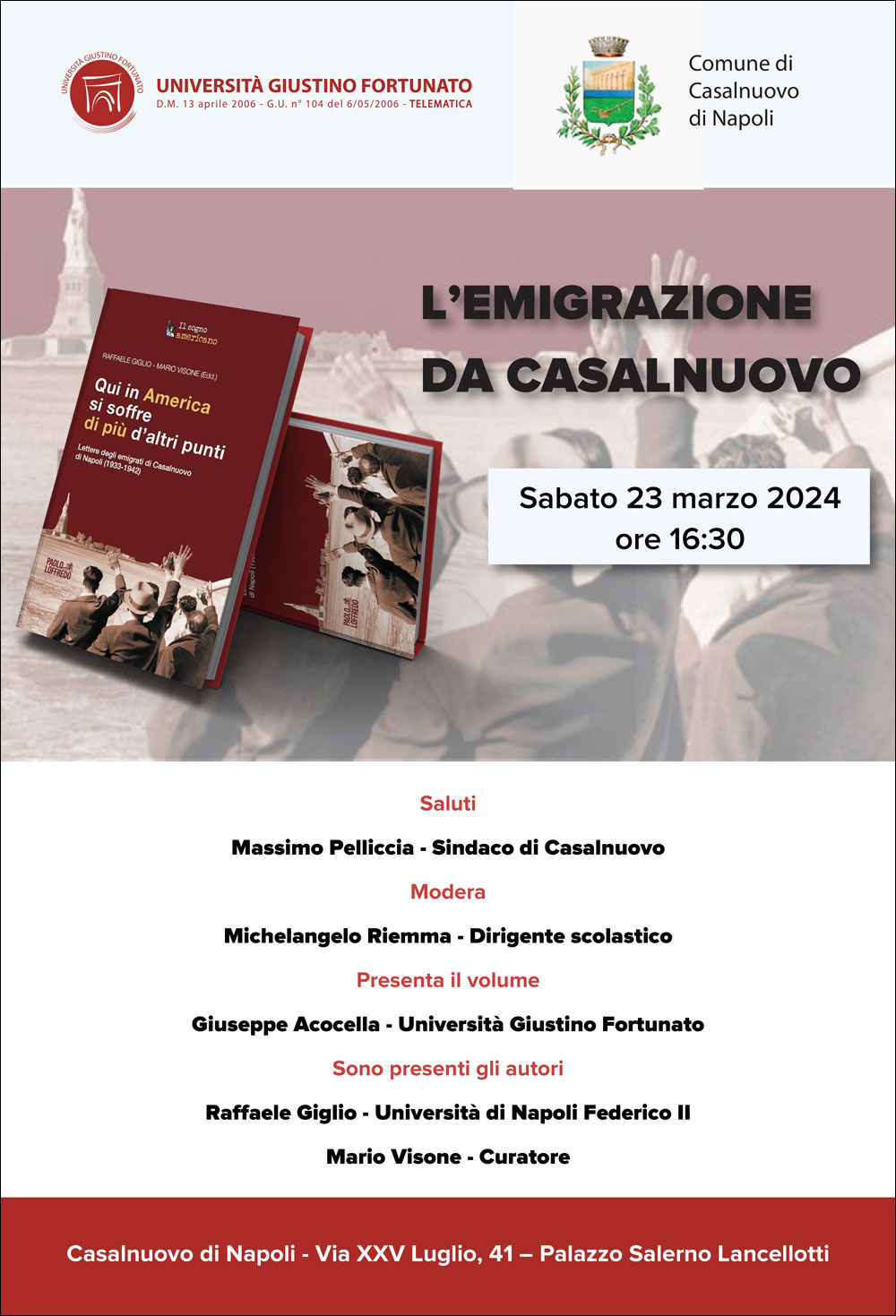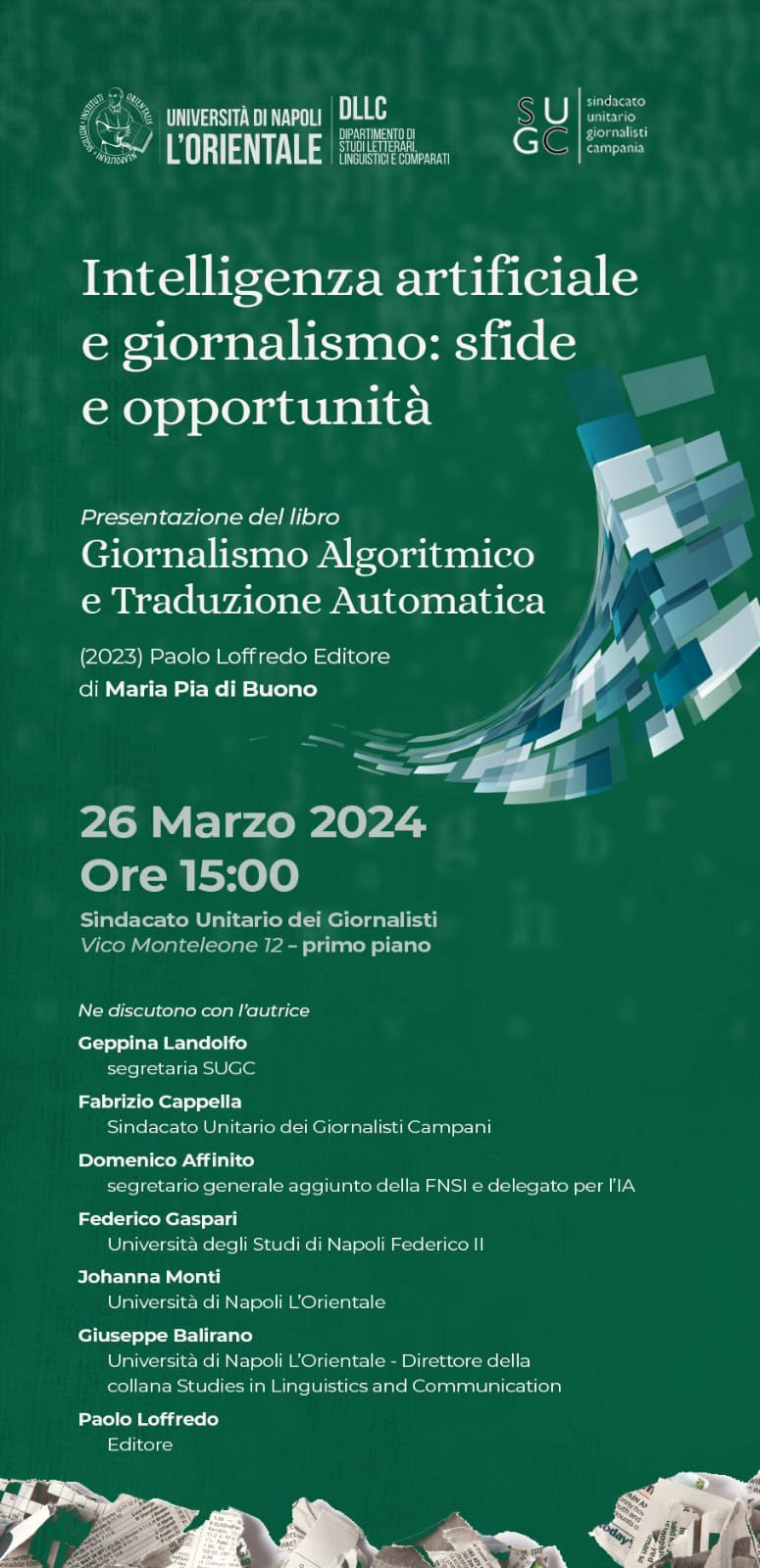 Paolo Loffredo, sixth generation of a large family of publishers and booksellers engaged in the production and distribution of books since the late nineteenth century, creates in 2012 the new editorial company Paolo Loffredo Editore. The historical site was until the '80s in the heart of the historic centre of Naples in Via San Biagio dei Librai, lower Decumano and also known as the SpaccaNapoli.
Paolo Loffredo, sixth generation of a large family of publishers and booksellers engaged in the production and distribution of books since the late nineteenth century, creates in 2012 the new editorial company Paolo Loffredo Editore. The historical site was until the '80s in the heart of the historic centre of Naples in Via San Biagio dei Librai, lower Decumano and also known as the SpaccaNapoli.
At the beginning of the twentieth century, Giuseppe Loffredo decided to add book selling to the book production, which definitively imposed itself after World War II with the publication of manuals for the University and for the School that succeeded in establishing themselves soon throughout Italy.
LAST EVENT
"L'emigrazione da Casalnuovo"
23 Marzo 2024 - Palazzo Salerno Lancellotti Ateneo, via XXV Luglio, 41 - Casalnuovo (NA) - ore 16,30

--------------------------------------------------------------------
"Intelligenza artificiale e giornalismo: sfide e opportunità"
26 Marzo 2024 - Sindacato Unitario dei Giornalisti - vico Monteleone, 12 - primo Piano - Napoli - ore 15,00

Sofferenza e religioni abramitiche
ISSN :
Language: Italian
Publisher: Paolo Loffredo Iniziative Editoriali Srl

Description
Sofferenza e religioni abramitiche
The Karol Wojtyla International Association (AIKW) - whose members, by statute, belong to the three great Abrahamic monotheistic religions: Judaism, Christianity and Islam - considers dialogue between people of different faiths and the comparison between religions on social, cultural , ethical and moral that concern the complexity of human affairs, especially in today's world.
One of the great themes of confrontation between religions is therefore represented by human suffering in all its forms, physical, moral, psychological, social, including those connected to cultural, social, religious and gender discrimination and intolerance. The Karol Wojtyla International Association places the fight against suffering, the meaning of its presence in human affairs, at the center of its activity. To this end, it promotes the publication of this volume which intends to investigate Pain and suffering in the contemporary world: the vision of the Abrahamic religions, a theme made even more topical by the pandemic, not yet fully tamed, and by the outbreak of war in Ukraine, in our Europe.
The chapters that make up the book deal in more depth and with different perspectives on the topics already developed by the AIKW, in particular the theme of the attitude of the man who believes in God and of the agnostic or atheist man in the face of suffering, in a world like the present one, materialistic and devoid of a sense of transcendence, of religious faith and often imbued with a generic spirituality, expressed in a superficial way and not intimately lived. Faced with the inevitable storms of life, believing or not in human transcendence, believing in God and living a religious faith, what changes in our way of dealing with them? In the part dedicated to Art and suffering, illustrious scholars then discuss the ways in which pain and suffering are represented in the various expressions of the figurative and musical arts, according to the sensitivities and traditions of the various faiths of belonging. Finally, the volume contains the Glossary of Bioethics at the end of life, intended for citizens and edited by AIKW, with the collaboration of illustrious authors, such as the Honorary President of the Constitutional Court, Prof. Riccardo Chieppa. The Glossary includes 16 items, from the so-called Living Will/advance treatment provisions to euthanasia, deep or palliative sedation. For each item, to which a page is intended, a double reading is proposed: definitional and juridical and deontological-medical. Interreligious bioethics is also considered, with reference to the Joint Declaration of Abrahamic Monotheistic Religions on End-of-Life Issues, signed in 2019, Vatican City, by Jewish, Christian and Muslim representatives.



